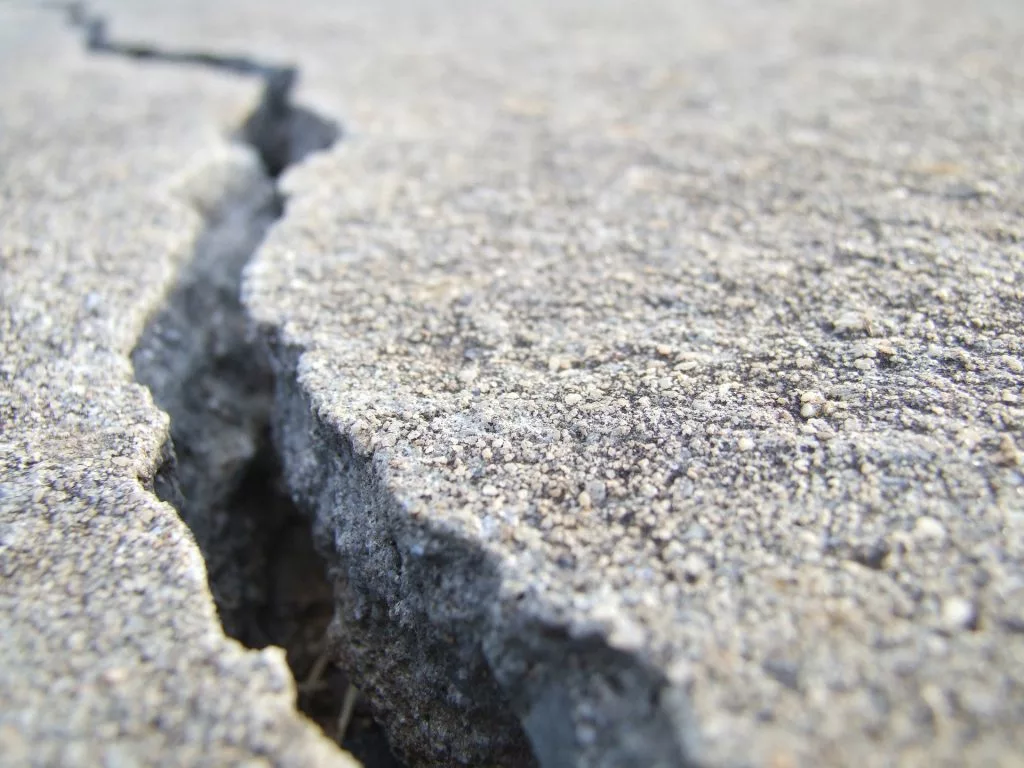
In Illinois, cities and municipalities are generally immune from lawsuits. In order to bring a lawsuit against a city or municipality, you have to show that the government acted intentionally or showed a “conscious disregard” for the safety of others. This is called willful and wanton conduct.
City and suburban sidewalks are in a state of disrepair across Illinois. A broken or unlevel sidewalk isn’t just unsightly, it’s dangerous. A small crack or a level change hidden beneath snowy conditions can pose a serious hazard to children, joggers, and the elderly. At night, the danger becomes much greater and individuals can fall victim to and suffer a fall on an unmaintained sidewalk.
Typically, cities and municipalities are not responsible for small cracks or level changes that are less than 2 inches. This is often referred to as the De Minimus rule and it protects governments from being sued if you trip or slip and fall because of a small defect in a sidewalk. But for larger cracks and level changes, cities and municipalities can be held responsible for failing to inspect and repair dangerous sidewalks.
If you trip or slip and fall on a sidewalk here are the essential things you need to do to protect your claim:
Find Out Who Owns the Sidewalk
Before you can pursue any claim, you need to find out who owns the sidewalk where you fell. A lawyer can assist you in locating the owner. If the sidewalk is privately owned your case will be much different than if the sidewalk is government-owned. The standards of proof are higher for cases against the government than they are for private entities.
Know the Statute of Limitations
In Illinois, an injured person usually has 2 years from the date of their injury to file a lawsuit. However, when the government is at fault, that statute of limitations is only one year. It’s important that you know the one-year statute of limitations and act quickly to protect your rights. If the statute of limitations expires, you are usually barred from bringing any lawsuit to recover for your injuries.
Call 911 or Get Medical Attention
Trips or slips and falls because of unlevel or broken sidewalks can lead to catastrophic injuries. Concussions, broken ankles or legs, or broken wrists and arms are often the consequences of dangerous sidewalks. It’s important to put your health first and seek any and all medical attention you need to maintain your health and recover.
Calling 911 will also ensure that a report is made to document your fall and the circumstances surrounding it. The more documentation you have, the easier it is to prove your case.
Take Photographs and Measurements
In order to avoid a De Minimus rule argument from the government, it’s best to take photos and measurements. Take a tape measure and measure the level change or the size of the crack or defect that caused you to fall. If it is a depression, try pouring water into the depression to determine its volume. A lawyer, and the experts we work with such as architects or engineers, can help you with this. It’s important that you take measurements quickly, as cities often repair defects after a person is injured.
File a Report with Your City or Municipality
Put the government on notice of the dangerous condition that caused you to fall. This will often cause the government entity to go out and inspect the area you fell and perform repairs so that others don’t get hurt. The documentation created by this inspection and repair process can also be used to help prove your case.
Consult with a Lawyer
The slip and fall lawyers at The Collins Law Firm have experience handling cases involving falls on sidewalks, including cases against governments and private entities. We work with experts and have taken these cases to court to get justice for the injured. It’s important that you consult with a lawyer quickly in these types of cases, because of the shortened statute of limitations and the need to preserve key evidence. For a FREE evaluation of your trip and fall case, call us at (630) 527-1595 or fill out our contact form.

"*" indicates required fields